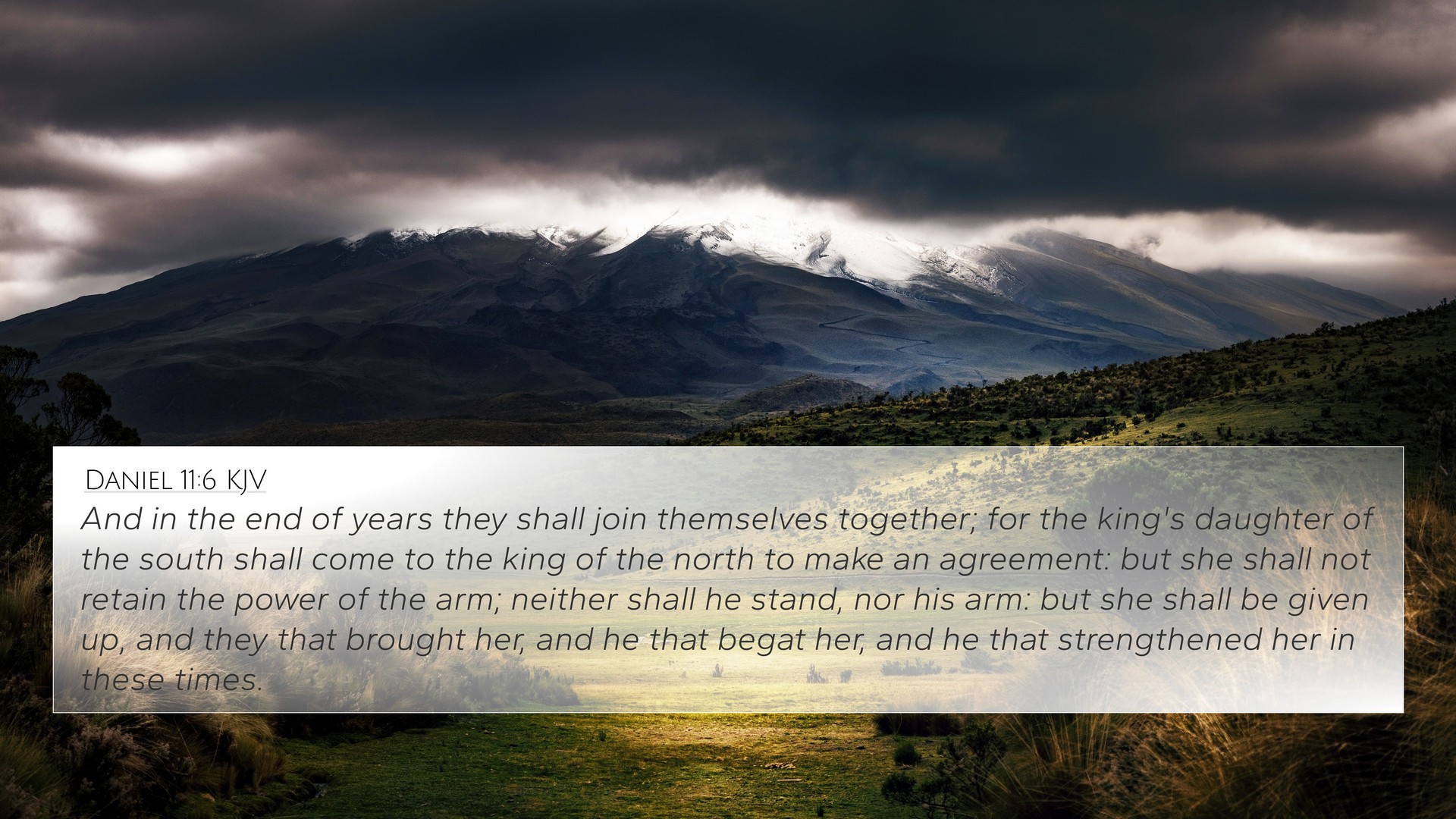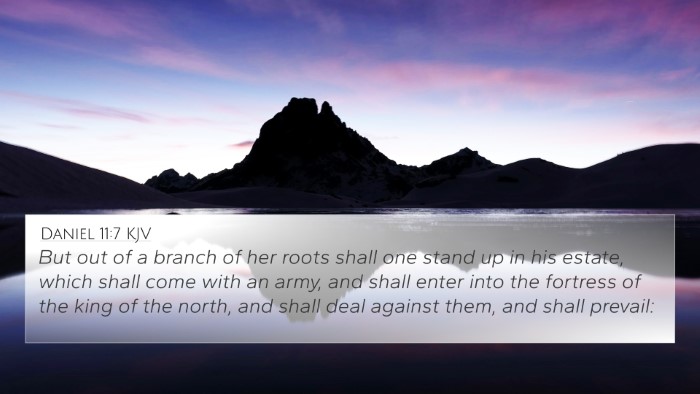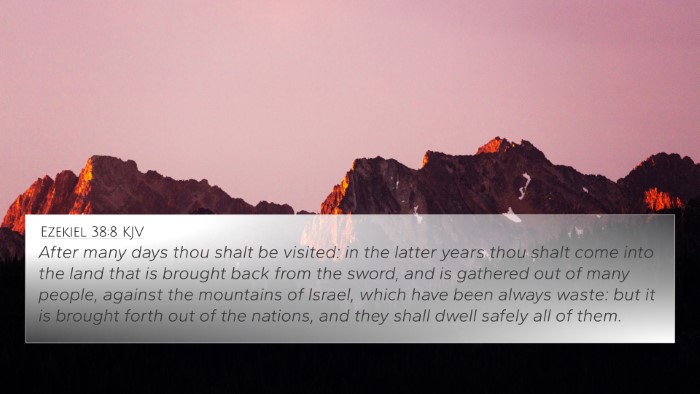Understanding Daniel 11:6
Daniel 11:6 states: “And at the end of years they shall join themselves together; for the king's daughter of the south shall come to the king of the north to make an agreement: but she shall not retain the power of the arm; neither shall he stand, nor his arm: but she shall be given up, and they that brought her, and he that begat her, and he that strengthened her in these times.”
Summary of Insights
- Contextual Background: This verse is part of a prophetic vision given to Daniel regarding the succession of empires and political alliances that characterized the historical periods following the Persian Empire.
- Political Dynamics: Matthew Henry notes that this passage illustrates the fragile nature of political alliances, particularly emphasizing how they can change and dissolve over time.
- Symbolism of the King’s Daughter: Albert Barnes interprets the action of the king’s daughter from the south marrying the king of the north as a means of seeking peace through marriage, a common practice in ancient diplomatic relations.
- Failure of Alliances: Adam Clarke points out that despite the union, the anticipated stability does not follow; instead, this partnership ultimately leads to betrayal and loss of power.
- Theological Significance: The verse reflects a broader theme within Scripture of human attempts to govern through alliances, emphasizing the sovereignty of God over human plans.
- Historical Fulfillment: The events described are often linked to historical figures such as Ptolemaic and Seleucid kings, making this a relevant study for understanding biblical prophecy’s alignment with history.
- Broader Implications: The struggle illustrated establishes a pattern seen throughout Scriptural history regarding the dangers of reliance on human strength versus divine will.
Cross-References
This verse establishes connections with numerous other biblical passages that illuminate similar themes:
- Genesis 34:12: Discusses the use of marriage to forge alliances.
- Isaiah 30:1-5: Explores the futility of seeking help from Egypt (the south) to protect against Assyria (the north).
- Amos 3:3: Highlights the necessity of agreement for partnership, essential to understanding alliances.
- Proverbs 21:30: Indicates that no wisdom or plans can prevail against the Lord’s will, reinforcing the theme of divine sovereignty.
- Luke 14:31-32: Discusses the importance of counting the cost before entering alliances, reminiscent of political maneuvering in Daniel.
- Jeremiah 7:4: Cautions against relying on false assurances; parallel to the false security of political marriages.
- Revelation 17:12-14: Speaks to alliances that are ultimately led to destruction, reflecting this verse's outcome.
- Matthew 24:6: Warns against wars and rumors of wars, alluding to the conflicts that arise from failed alliances.
- Psalms 146:3: Advises against putting trust in princes, invoking the safer refuge found in God amid human politics.
- Romans 8:31: Affirms that if God is for us, who can be against us, summarizing the ultimate dependency on divine strength versus political strength.
Thematic Connections
This verse relates to the larger narrative of the Bible where:
- The Lord’s Authority: The ultimate futility of relying on human alliances highlights God's supreme authority over earthly kingdoms.
- Prophecy and Fulfillment: Prophetic scripture often intertwines with historical events, showing that God's word stands firm against the failings of humanity.
- Relationships and Trust: This verse exemplifies the precarious nature of human relationships based on power and control, contrasting with scriptural teachings on love, unity, and trust in God.
Inter-Biblical Dialogues
The connections between Daniel 11:6 and other biblical texts foster deeper understanding through techniques such as:
- Comparative Bible Verse Analysis: Examining how political alliances function across different scriptures expands comprehension of God's plans.
- Bible Cross-reference Guide: Using tools for cross-referencing can provide insights into how modern readers can understand biblical prophecies through historical events.
- Bible Reference Resources: Encourages scholars and laypeople alike to create comprehensive maps of thematic connections throughout the Bible.
Conclusion
In summary, Daniel 11:6 serves as a potent reminder of the transitory nature of human alliances, the importance of trusting in God over earthly powers, and the intricate interplay between history and prophecy within Scripture. The thematic parallels and cross-references urge readers to explore deeper spiritual truths and historical contexts, enriching their biblical understanding.











